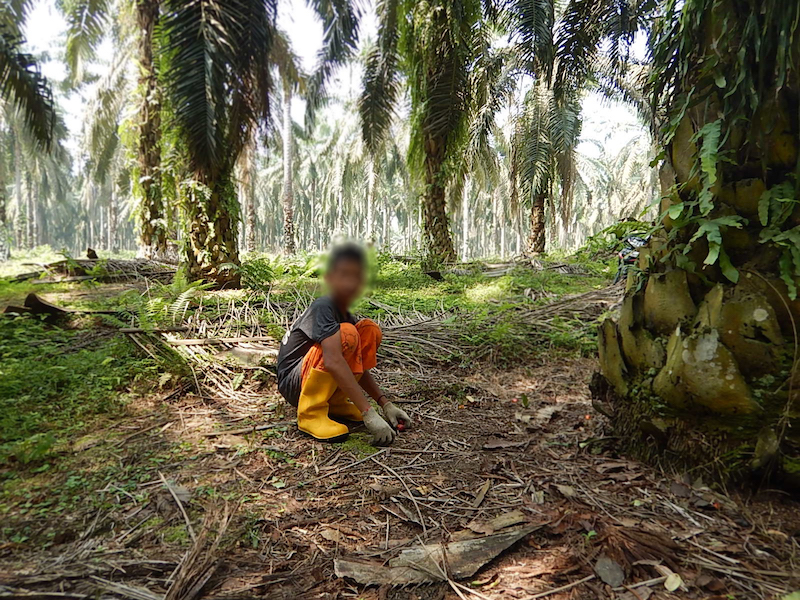The backbone of any certification system is its credibility in the market.
If brands like PepsiCo, and others in the Snack Food 20, put a so-called ‘sustainable’ palm oil label on their products they want some assurance that it will translate to a standardized level of performance on the plantations where the raw materials are grown. Today, Rainforest Action Network (RAN), Indonesian labor rights advocacy organization OPPUK, and International Labor Rights Forum (ILRF) have lodged a formal complaint against palm oil giant Indofood with the Roundtable on Sustainable Palm Oil (RSPO), putting the credibility of the palm oil industry’s largest certification scheme to test.
Amid controversies arising from two scathing investigations documenting systemic labor violations on Indofood palm oil plantations in Indonesia, the groups are calling for the suspension of two of Indofood’s subsidiaries––PT. PP London Sumatra Indonesia Tbk. (Lonsum) and PT. Salim Ivomas Pratama Tbk. (Salim Ivomas)––from the RSPO. Now all actors are waiting to see if the RSPO, and its Complaints Panel, will respond by upholding its rules and suspending this highly controversial rogue member.
The evidence is clear: Indofood is systematically violating the fundamental rights of workers on its palm oil plantations. The complaint presents detailed evidence, initially published in June 2016, in the report “The Human Cost of Conflict Palm Oil: Indofood, PepsiCo’s Hidden Link to Worker Exploitation in Indonesia,” which documented abuses including the use of child labor, exposure of workers to highly hazardous pesticides, payment below the minimum wage, long-term reliance on temporary workers to fill core jobs, and suppression of independent labor union activity on two Indofood plantations. It also refers to the findings of a report filed recently by Accreditation Services International (ASI), the RSPO’s own accreditation body, which found that Indofood was in violation of both the RSPO Principles & Criteria, as well as the RSPO Code of Conduct. ASI’s report found similarly widespread violations of Indonesian labor law, unsafe and inconsistent practices for use and storage of pesticides, a lack of contracts for casual workers prior to 2016, contract terms for casual workers which prevent them from meeting the basic minimum wage, lack of registration for social benefits for all workers, and discriminatory employment terms.
Indofood is the largest private palm oil plantation company in Indonesia which has yet to adopt a commitment to ending deforestation, upholding the rights of all workers and resolving conflicts with communities. Instead of publicly acknowledging the egregious conditions facing its workers and committing to address them, the company has responded by saying that, “As far as the IndoAgri is concerned, the IndoAgri has complied with all Indonesian laws and regulations.”
Now is the time for all RSPO members to ensure that the certification system upholds its standards—including a number of its members that are clients, business partners, or investors in Indofood, its plantation arm IndoAgri, and its parent company First Pacific, such as PepsiCo, Nestle, Unilever, Procter & Gamble, Musim Mas, Golden Agri Resources, and Wilmar; and European banks HSBC, Rabobank, Standard Chartered, BNP Paribas; and US-based Citibank.
Time will tell if the RSPO is capable of holding its members accountable to its standards. Given it has a poor track record of doing so, most recently seen with its lifting of the suspension on industry laggard IOI Group, this complaint provides an opportunity for the RSPO to demonstrate that it can, and will, take actions to enforce compliance with its standards which still have major shortcomings on key issues such as permitting deforestation and the destruction of peatlands.
